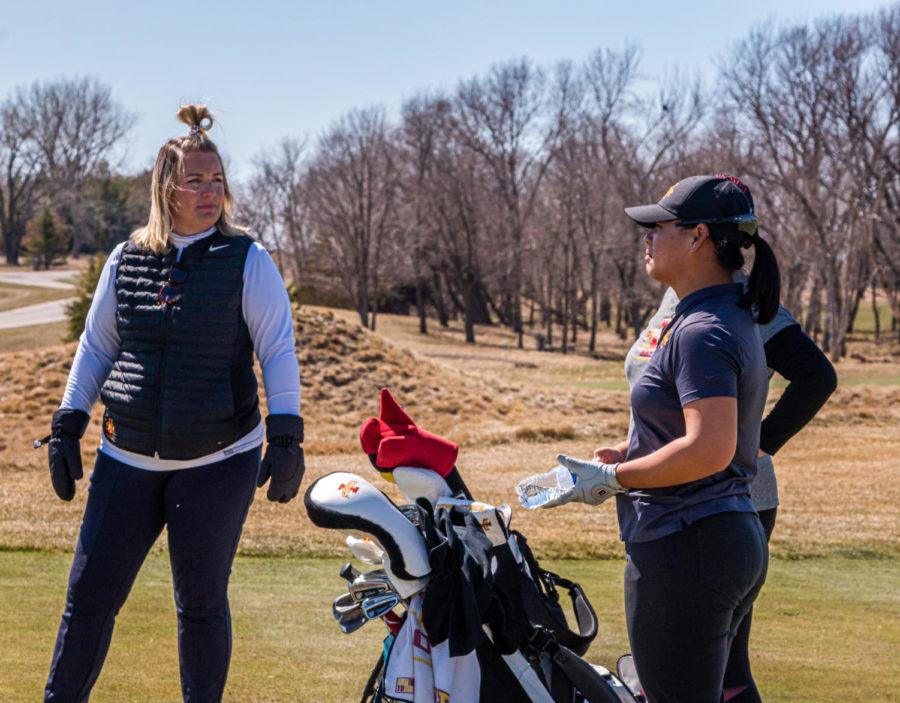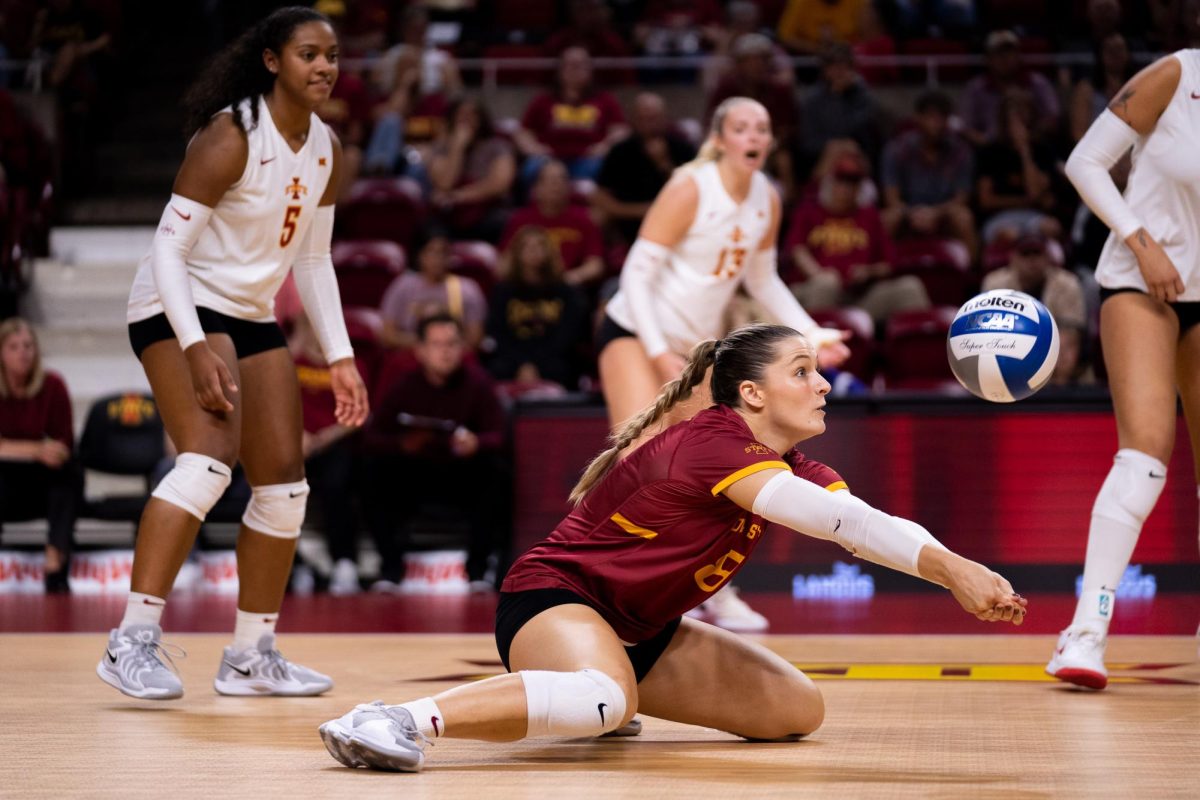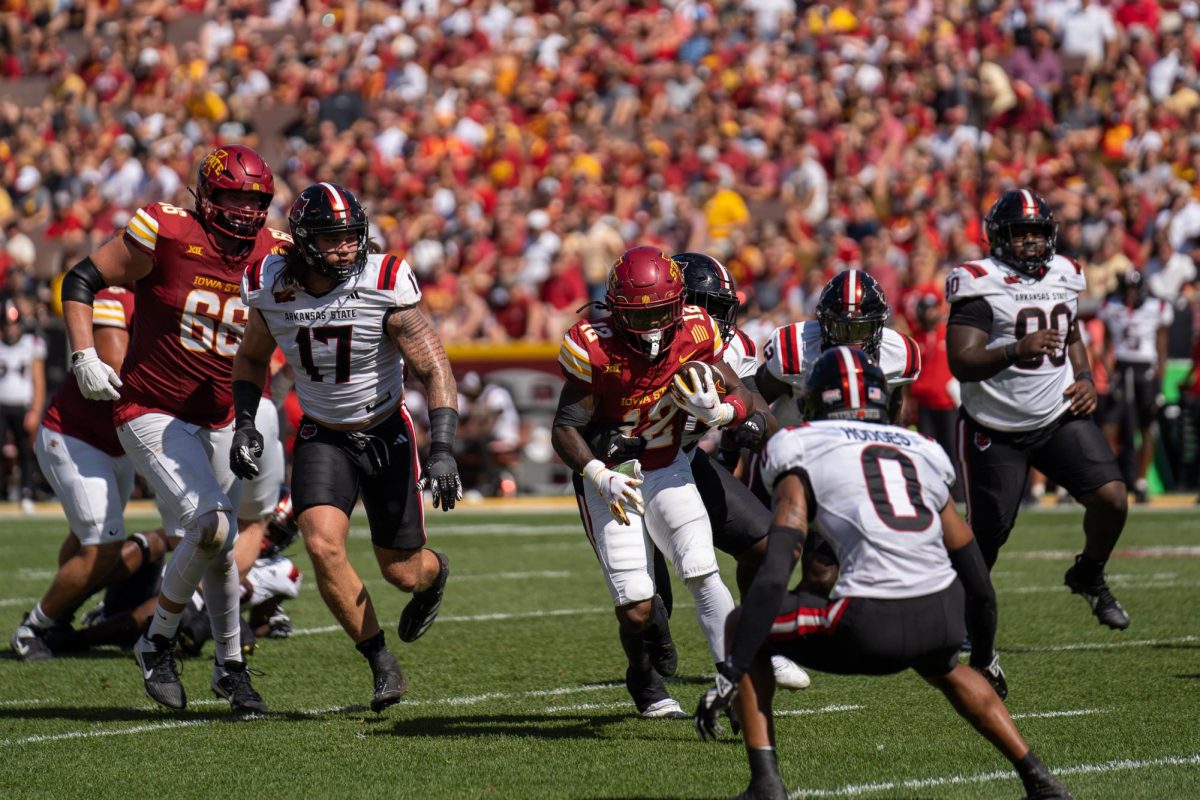Theater group embraces diversity
December 8, 1998
Diversity Players, a student-led group, uses theater to teach the Iowa State community about multicultural issues and diversity.
The theater troop was formed in January 1998 by graduate student Julie Nelson and six undergraduate students.
Nelson, graduate assistant in educational leadership and policy studies, said the group’s mission is to illustrate the challenges involved with living and learning as a Lesbian, Gay, Bisexual or Transgender (LGBT) person; a person with a disability; a person with an eating disorder; or a racial/ethnic minority at ISU.
Diversity Players will perform skits on requests. In the past, they have presented programs to residence halls.
Diversity Players’ main objective, Nelson said, is to educate people about how it feels to be different. The group, she said, invites members of the audience to talk honestly with them about why differences present so many challenges day-to-day interactions with others.
Nelson believes this message consists of four main points.
“First, that it is OK not to be OK with various aspects of diversity,” she said. “Second, that diversity is not about some group ‘over there.’ Diversity is all around us. Third, that diversity is more than a cerebral issue. Finally, that we are all just learning how to do this diversity dance.
“This means that we all get to negotiate the contours and texture together,” she said.
Linda Williams, member of the troop and graduate student in educational leadership and policy, feels that the purpose of the Diversity Players is to raise awareness about people who come from different backgrounds.
The Diversity Players creates dramatic scenarios during its practice sessions, she said, often developing scripts from improvisation. Themes for scripts emerge from a desire by the group to highlight a particular theme, such as racism or homophobia.
Nelson stresses that as Diversity Players, they do not have all the answers; however, they offer a place for discussion.
“We believe that through discussion, through audience participation, this process gives people an opportunity to ‘practice’ standing in someone else’s shoes and to strategize with us about how social interactions might change or move in another direction,” she said.
Nelson believes that theater is a perfect venue for exploring diversity because dramatic scenes make uncomfortable interactions visible to an audience in a way that discussing diversity on an abstract level cannot do.
“By performing a dramatic sketch, everyone in the audience has a common frame of reference to talk about the issues presented without having to put anyone in the audience on the spot,” she said.
The scenes typically are exaggerated, which Nelson believes allows a discussion to flow naturally.
“Audience members seem relieved to find out they were not the only ones who did not know how to act in a certain situation,” Nelson said. “Diversity Players is all about letting people be who they are, as they are, in order to make space just to listen to each other.”
Currently, the club includes 12 members from across all colleges, Nelson said.
“Our aim is to include as many people as we can. At some point we hope to deal with religious diversity, as well,” she said.
“I think it would be amazing to have dialogues opened up in a respectful but mutually exploratory way between LGBT students and students with religious views that oppose homosexuality,” Nelson said. “At the same time, those are the sites we need to visit if we are truly about exploring the hard issues.”






